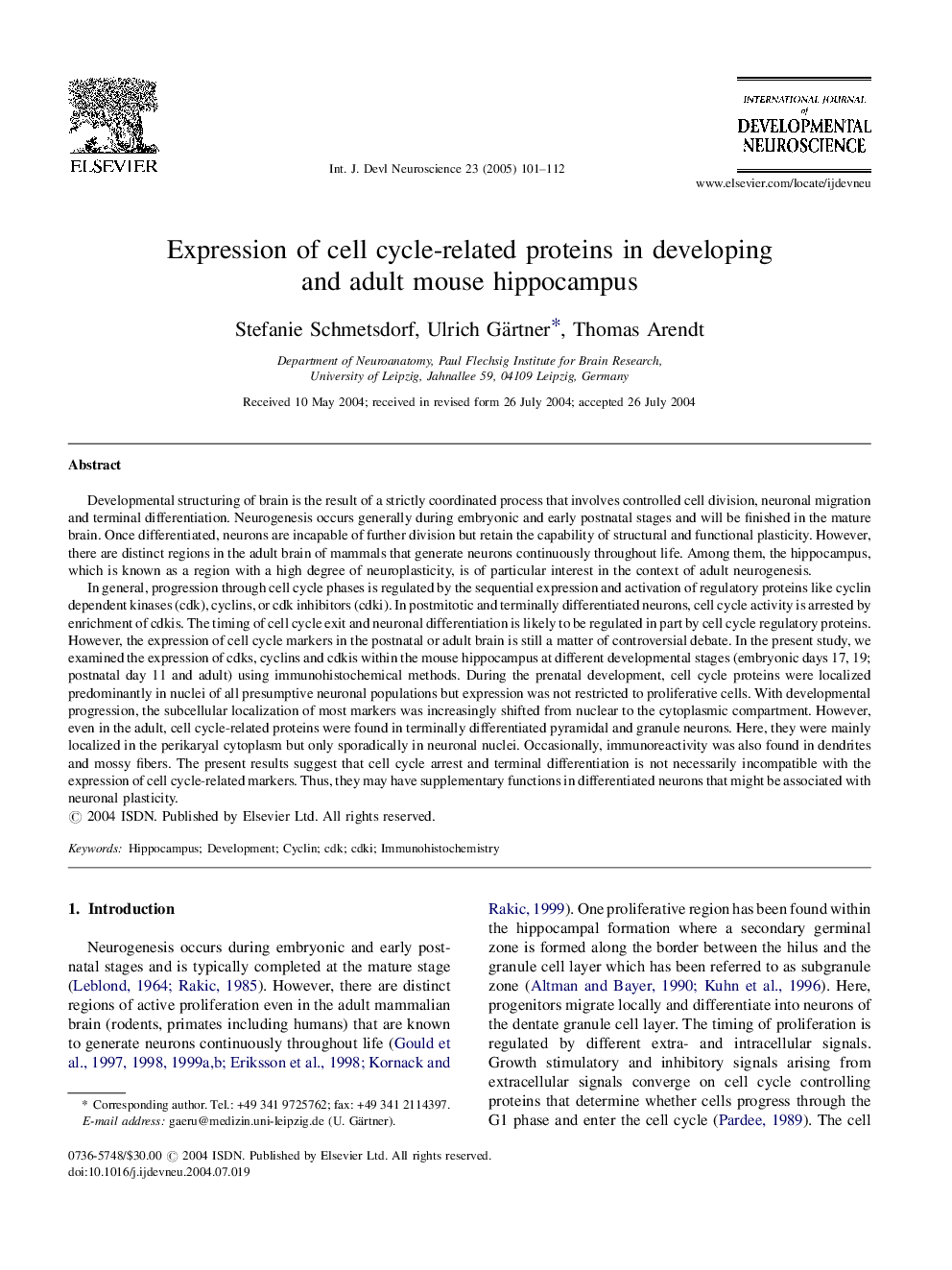| Article ID | Journal | Published Year | Pages | File Type |
|---|---|---|---|---|
| 9933623 | International Journal of Developmental Neuroscience | 2005 | 12 Pages |
Abstract
In general, progression through cell cycle phases is regulated by the sequential expression and activation of regulatory proteins like cyclin dependent kinases (cdk), cyclins, or cdk inhibitors (cdki). In postmitotic and terminally differentiated neurons, cell cycle activity is arrested by enrichment of cdkis. The timing of cell cycle exit and neuronal differentiation is likely to be regulated in part by cell cycle regulatory proteins. However, the expression of cell cycle markers in the postnatal or adult brain is still a matter of controversial debate. In the present study, we examined the expression of cdks, cyclins and cdkis within the mouse hippocampus at different developmental stages (embryonic days 17, 19; postnatal day 11 and adult) using immunohistochemical methods. During the prenatal development, cell cycle proteins were localized predominantly in nuclei of all presumptive neuronal populations but expression was not restricted to proliferative cells. With developmental progression, the subcellular localization of most markers was increasingly shifted from nuclear to the cytoplasmic compartment. However, even in the adult, cell cycle-related proteins were found in terminally differentiated pyramidal and granule neurons. Here, they were mainly localized in the perikaryal cytoplasm but only sporadically in neuronal nuclei. Occasionally, immunoreactivity was also found in dendrites and mossy fibers. The present results suggest that cell cycle arrest and terminal differentiation is not necessarily incompatible with the expression of cell cycle-related markers. Thus, they may have supplementary functions in differentiated neurons that might be associated with neuronal plasticity.
Related Topics
Life Sciences
Biochemistry, Genetics and Molecular Biology
Developmental Biology
Authors
Stefanie Schmetsdorf, Ulrich Gärtner, Thomas Arendt,
